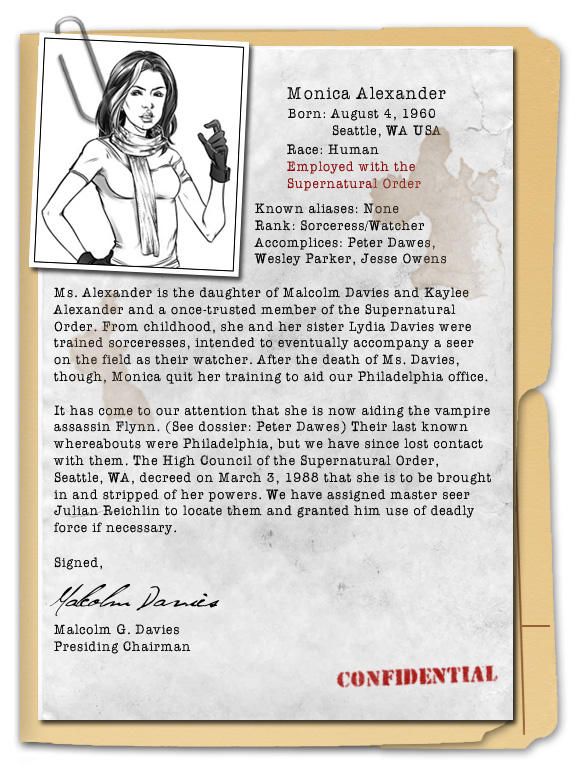 Do you believe it's August already? Where did the summer go. Anyway, this month we have the question: do you have any character habits or favorite words that always crop up in your writing?
Do you believe it's August already? Where did the summer go. Anyway, this month we have the question: do you have any character habits or favorite words that always crop up in your writing?
XX
 I’d like to think that this doesn’t apply to my writing. Being a pantser with mostly character driven stories, I create thorough dossiers on all my main characters, both recurring in a series or for stand alone books. Usually, I end up knowing where they were born, how they reacted to kindergarden, what their life was like in high school and college etc. In doing so, I use a number of sources like birth order, family history, books like Building Believable characters and Writer’s Digest Guide to Character Traits. I also borrow from people I know, and characters on TV. So, I try to create characters with habits and speech patterns that are distinctively theirs.
I’d like to think that this doesn’t apply to my writing. Being a pantser with mostly character driven stories, I create thorough dossiers on all my main characters, both recurring in a series or for stand alone books. Usually, I end up knowing where they were born, how they reacted to kindergarden, what their life was like in high school and college etc. In doing so, I use a number of sources like birth order, family history, books like Building Believable characters and Writer’s Digest Guide to Character Traits. I also borrow from people I know, and characters on TV. So, I try to create characters with habits and speech patterns that are distinctively theirs.
XX
 A young man I worked with as a reenactor constantly used the phrase “fair enough,” which intrigued me and I’ve endowed one or more of my characters with that habit of speech. Other speech patterns I’ve adopted for my characters come from specific career choices. If one of my characters is a cop, some of the familiar bits of cop talk will become part of their vocabulary that would be very different from the man who wears a suit and works in an office or a seventy-five year old cat lady, or a child. Because I am none of these (Well, I admit to the seventy-five, but deny the lady part and I don’t have cats.) I do a lot of eavesdropping. I volunteer at the USO lounge at the airport and it’s a great place to pick up odds and
A young man I worked with as a reenactor constantly used the phrase “fair enough,” which intrigued me and I’ve endowed one or more of my characters with that habit of speech. Other speech patterns I’ve adopted for my characters come from specific career choices. If one of my characters is a cop, some of the familiar bits of cop talk will become part of their vocabulary that would be very different from the man who wears a suit and works in an office or a seventy-five year old cat lady, or a child. Because I am none of these (Well, I admit to the seventy-five, but deny the lady part and I don’t have cats.) I do a lot of eavesdropping. I volunteer at the USO lounge at the airport and it’s a great place to pick up odds and  ends of military jargon and speech habits, one of which is Sir and Ma’am for everyone. That’s also a regional thing as well. In New England, where I grew up, the only person who ever called me Ma’am was the soldier who called our office daily to report in to my boss who was his commanding officer in the reserves, but here in the south it's as common as cornbread and sweet tea.
ends of military jargon and speech habits, one of which is Sir and Ma’am for everyone. That’s also a regional thing as well. In New England, where I grew up, the only person who ever called me Ma’am was the soldier who called our office daily to report in to my boss who was his commanding officer in the reserves, but here in the south it's as common as cornbread and sweet tea.
XX
 Regional dialect is another way of differentiating your characters and settings, so listening to natives of an area helps to pick out themes and habits of speech to add authenticity to your characters. An author can easily go a little overboard with some dialect, though, and totally lose the reader because every sentence is littered with dialect. I have a book out set in 1775 with a hero from Scotland. So, I was careful to choose just a few typical Scots/Gaelic words to set his dialog apart from my heroine who is a time traveler from the 20th century and made sure she had a few very late 1900s phrases and expressions in hers.
Regional dialect is another way of differentiating your characters and settings, so listening to natives of an area helps to pick out themes and habits of speech to add authenticity to your characters. An author can easily go a little overboard with some dialect, though, and totally lose the reader because every sentence is littered with dialect. I have a book out set in 1775 with a hero from Scotland. So, I was careful to choose just a few typical Scots/Gaelic words to set his dialog apart from my heroine who is a time traveler from the 20th century and made sure she had a few very late 1900s phrases and expressions in hers.
XX
 But I admit that personal speech patterns tend to sneak their way into my writing. Like the use of the word “so” at the start of the last sentence in the previous paragraph. I’ve listened to recordings of myself and “so” litters my dialog, along with other totally useless words. Often in my personal speech, I use “ing” words – for instance, “Don’t be telling me that.” Or “I’ll be going now.” Both sentences in another person’s speech might be said as, “Don’t tell me that.” Or, “I’m off.” Most of this personal stuff ends up getting cut in the multiple rounds of editing, but occasionally they get overlooked. I doubt this is just a quirk of mine. We all have personal ways of speaking that just normally show up in our writing, but I’m guessing we all do a lot of editing to get rid of those repetitive things.
But I admit that personal speech patterns tend to sneak their way into my writing. Like the use of the word “so” at the start of the last sentence in the previous paragraph. I’ve listened to recordings of myself and “so” litters my dialog, along with other totally useless words. Often in my personal speech, I use “ing” words – for instance, “Don’t be telling me that.” Or “I’ll be going now.” Both sentences in another person’s speech might be said as, “Don’t tell me that.” Or, “I’m off.” Most of this personal stuff ends up getting cut in the multiple rounds of editing, but occasionally they get overlooked. I doubt this is just a quirk of mine. We all have personal ways of speaking that just normally show up in our writing, but I’m guessing we all do a lot of editing to get rid of those repetitive things.
XX
 As for habits – it’s easy to use personal habits because you live them every day and you don’t have to go thinking them up. If you love to jog, it’s easy to give your character that habit as well because you don’t have to think about when, where, how, why how it makes the character feel etc. But let’s face it, not every character you create can be a jogger so you have to borrow from others. I Hope you borrow from others, or your characters will begin to blur together.
As for habits – it’s easy to use personal habits because you live them every day and you don’t have to go thinking them up. If you love to jog, it’s easy to give your character that habit as well because you don’t have to think about when, where, how, why how it makes the character feel etc. But let’s face it, not every character you create can be a jogger so you have to borrow from others. I Hope you borrow from others, or your characters will begin to blur together.
XX
 I know writers who have had careers in law enforcement (or are close to someone who has) and their characters always “exit” their vehicles. Sounds like cop talk and isn't very descriptive of the activity. Perhaps some of their characters should climb out, or slide out depending on the type of car or truck, or the size and age of the person because it adds more variety, not just to the narrative, but to the characters themselves. The same could be applied to coffee drinkers. A large portion of Americans are coffee drinkers, but not all to the same level. Some folks can’t function without that first jolt of high caffeine heat. Others are more laid back about their coffee drinking and still others drink tea instead.
I know writers who have had careers in law enforcement (or are close to someone who has) and their characters always “exit” their vehicles. Sounds like cop talk and isn't very descriptive of the activity. Perhaps some of their characters should climb out, or slide out depending on the type of car or truck, or the size and age of the person because it adds more variety, not just to the narrative, but to the characters themselves. The same could be applied to coffee drinkers. A large portion of Americans are coffee drinkers, but not all to the same level. Some folks can’t function without that first jolt of high caffeine heat. Others are more laid back about their coffee drinking and still others drink tea instead.
XX
 As an author, it can be so easy to just put your writing in cruise control and let what is most familiar to you take over. But if you want your characters to stand out, have personalities of their own, you have to avoid letting your personal habits loom so large. Let one of your guys play golf even if you’ve never picked up a club in your life. Have another jump out of airplanes or knit. Just as your characters’ names, careers, and physical descriptions are different, so should their speech, habits and hobbies.
As an author, it can be so easy to just put your writing in cruise control and let what is most familiar to you take over. But if you want your characters to stand out, have personalities of their own, you have to avoid letting your personal habits loom so large. Let one of your guys play golf even if you’ve never picked up a club in your life. Have another jump out of airplanes or knit. Just as your characters’ names, careers, and physical descriptions are different, so should their speech, habits and hobbies.
XX
But that’s just my opinion. Why not check out these authors and see what their take on this month’s question is…
XX
 Anne Stenhouse
Anne Stenhouse
Victoria Chatham
Connie Vines
Diane Bator
Beverley Bateman
Dr. Bob Rich
Fiona McGier
Helena Fairfax
Rhobin Courtright
Judith Copek